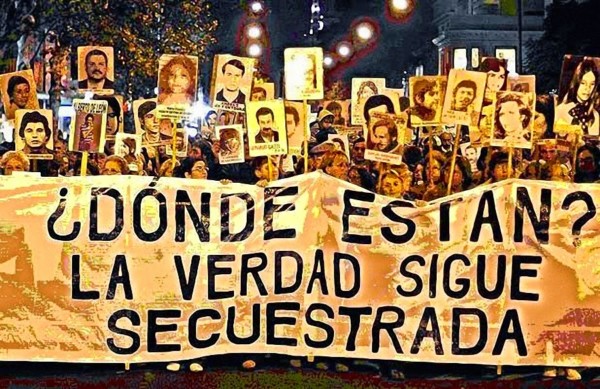Uruguay: preoccupation over overcrowding in prisons and gender-based violence
Published on 20 Jul 2022, 05:00 PM
Uruguay reviewed by the Human Rights Committee in its 135th session
 The Human Rights Committee reviews Uruguay's sixth report
The Human Rights Committee reviews Uruguay's sixth report
The Human Rights Committee reviewed the sixth periodic report of Uruguay on 30 June and 1 July, 2022. The Uruguayan delegation highlighted their ratification of all international human rights treaties and their standing open invitation to rapporteurs and independent experts to visit the country. However, Uruguay is one of the countries with the highest number of prisoners per inhabitant, and so Committee members questioned the delegation on the reform of their criminal procedure code, the conditions and overcrowding in prisons, and deaths of prisoners under custody, including minors. The independence of the national institution of human rights, gender-based violence, and crimes against humanity of the recent past were also salient issues.
Penitentiary system and overcrowding in prison
The issue of the situation of the penitentiary system in Uruguay, both for adults and minors, was an important topic during the dialogue. There are more than 14,000 persons deprived of liberty in penitentiary facilities, and overcrowding, the high level of recidivism, and cases of ill-treatment are high risk issues. Uruguay stated that they are working on building 3,500 additional places in prisons and they have a strategic plan to foster alternatives to detention and support the reintegration of former convicts. Also, they stated that cases of deaths in prisons were individual rather than a systematic issue, and highly related to the pandemic.
As for youth detention centers, Uruguay claimed that police officers were not involved in the social education of the detainees, contrary to what the Committee mentioned. The Committee also mentioned the case of abuse of juveniles at the Ceprili Home in 2015, and the fact that 56% of adolescents remained inside their cells between 12 to 18 hours per day.
For more information on the situation of the persons deprived of their liberty in Uruguay, see this report submitted by a CSO coalition to the Committee.
Women’s rights and gender-based violence
As for women’s rights, the Committee mentioned the difficulty of pregnant women without an Uruguayan nationality and migrants to access safe and legal abortions, to which Uruguay responded that all migrants who lived for more than one year in Uruguay could get an abortion, even withouth a residence permit or legal citizenship. Regarding the high percentage of professionals who refused to perform abortions due to conscientious objection, Uruguay mentioned that they were legally obliged to give clients a timely and effective referral to a non-objecting colleague. Child marriage was also highlighted, since in Uruguay 15% of women are married before the age of 18. The delegation mentioned that they were in the process of considering a bill that would raise the minimum age of marriage to 18.
As for gender-based violence, there were 30 femicides and 36,565 complaints of domestic violence in 2021. The delegation mentioned that they had established two specialized courts aimed at combating domestic and gender violence, and centers for victims of gender-based violence. They only provide specific reparations for children orphaned by femicides.
See this report submitted by the NGO El Paso and the Uruguayan Network against Domestic and Sexual Violence.
Watch again the dialogue with the Committee here.
Recommendations of the Human Rights Committee
Concluding Observations on Uruguay’s sixth periodic report were released on 27 July 2022. The State party is requested to provide, by 28 July 2025, information on the implementation of the following recommendations:
Violence against women and domestic violence
The State party should intensify its efforts to prevent, combat and eradicate all forms of violence against women and girls, including domestic violence and sexual violence, in particular, it should adopt the necessary measures to:
- a) Allocate the necessary financial, technical and human resources for the prevention, protection, punishment and redress of violence against women throughout its territory;
- b) Ensure that relevant public officials are adequately trained to detect, process and investigate cases of violence against women, taking into account a gender and human rights perspective;
- c) Facilitate and encourage the filing of complaints by victims; ensure that all acts of violence against women and girls are investigated promptly, thoroughly and impartially; that those responsible are prosecuted and punished; and that victims obtain comprehensive reparations.
Treatment of persons deprived of their liberty
The State party should increase its efforts to:
- a) Ensure that persons in pretrial detention are effectively separated from convicted persons;
- b) Ensure that all cases of deaths in custody are investigated; and that the perpetrators of deaths in custody are prosecuted and duly punished;
- c) Effectively reduce overcrowding and the high percentage of persons in pretrial detention and prioritize non-custodial social and educational measures for women who have committed non-violent offenses;
- d) Ensure that the pretrial detention of children and adolescents is avoided, promoting the use of alternative measures that do not involve deprivation of liberty, and bring its legislation and practices regarding adolescents in conflict with the law into line with the Covenant and international standards; e) Improve detention conditions by ensuring that they conform to the United Nations Standard Minimum Rules for the Treatment of Prisoners (Nelson Mandela Rules) and the United Nations Standard Minimum Rules for the Administration of Juvenile Justice (Beijing Rules), as well as respect for the dignity of persons deprived of their liberty in accordance with article 10 of the Covenant, with increased financial resources and adequate staffing.
 The Human Rights Committee reviews Uruguay's sixth report
The Human Rights Committee reviews Uruguay's sixth report


